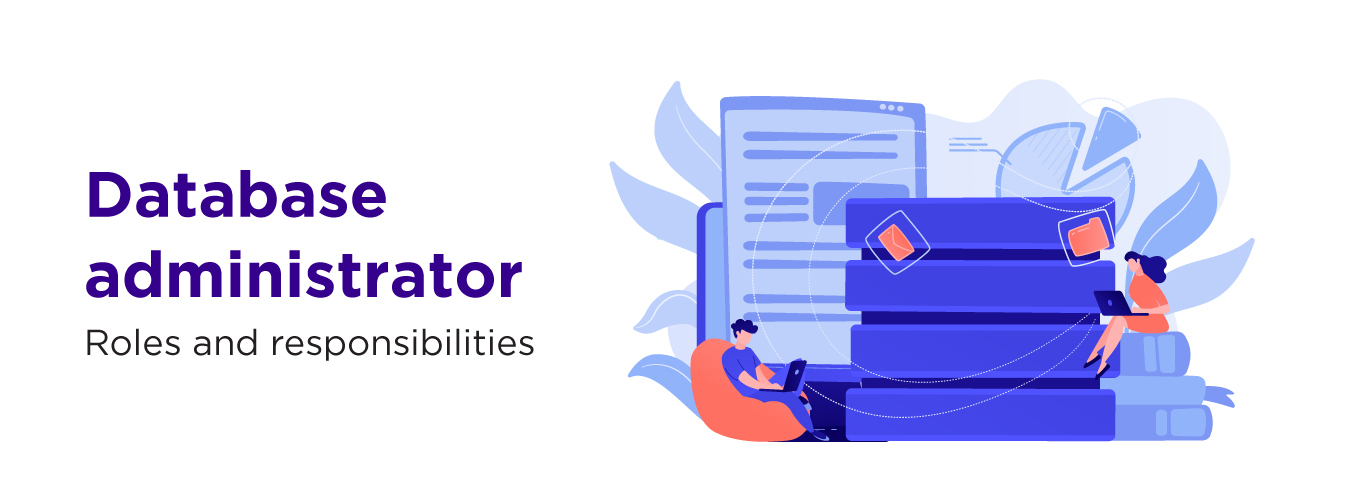Who is a database administrator
A database administrator (DBA) ensures that databases run efficiently and securely. The DBA manages, secures, and maintains data in data systems so that users of the data can perform business-related analysis using the data. DBAs are also responsible for data storage, organization, display, utilization, and analysis from a technological standpoint. An example would be that they create and organize systems to store different types of data such as financial information or shipping records. Their role is to ensure that users can access this information when needed.
The goal of a DBA is to provide a seamless flow of information through the company. They have to look at backend data structure as well as the front-end accessibility for end users. They also have to maintain adherence to a data management policy and ensure that the equipment is functional.
Table of Contents
What makes a good database administrator?
A database administrator must be able to analyse data and make quick decisions. They must have strong analytical skills that monitor performance. They should be able to identify problems within a system. They must have the ability to evaluate complex information from various sources, analyse them and determine relevant actions.
They will often have to work with the products of a data architect’s efforts. They will need to take a look at the logical models created by the data architect and ensure that there are no problems with them.
Qualifications required for becoming a database administrator
You would require a graduation in Computer Science or Computer Engineering. You will also need a minimum of two years’ experience and an advanced understanding of database theory and structure as well as knowledge of MS SQL and MySQL. A basic comprehension of database backup and disaster recovery techniques is a must, so is knowledge of reporting tools. It would be an added advantage if you have a certification in PostgreSQL. You must be prepared to function alone with little help.
Role of a database administrator
- Backing up all the data in the database constantly, which is necessary to restore operations during disaster and downtime.
- Periodically granting accessibility of the database to users.
- Recovering a file from a backup state.
- Creating a database which satisfies user needs, for which, knowledge of database architecture is needed.
- Migrating a database set from a physical base to a cloud base or from one application to another.
- Updating database software files whenever they are available in order to shield the software from security flaws.
- Ensuring that the database system operates without errors during new database software upgrades and fill any gaps.
- Knowing that datasets are assets and ensuring security of the database.
Responsibilities of a database administrator
- Working on software installation and maintenance, the initial installation and configuration of a new Oracle, SQL server or another database.
- Ensuring the integrity of the data stored in the database.
- Focussing on the database’s performance. You should make data available when needed and safeguard it preventing unauthorized access.
- Analysing the performance of the database and ensuring that it runs smoothly and efficiently.
- Planning, implementing, and managing the systems that hold data for a company.
Work experience
Some amount of IT sector experience will come in handy for a DBA position. Look for degrees where an internship is included. This will give you priceless practical experience, which will come in handy during employment. You should also gain programming skills and be proficient in different operating systems and database technologies. You will also be required to be familiar with DBMS, Unix and SQL.
Summary
Job opportunities for database administrators are expected to expand in the coming years. Businesses are increasingly opting for cloud computing as a storage option and this has contributed to a rise in demand for database expertise. Taking short courses and additional classes can help you advance in your career with increased managerial and technical responsibility.
People Also Ask
1. What are the necessary skills for a database administrator?
Main skills for a database administrator are having a strong grasp over SQL and SQL server tools, knowledge of data backup and recovery, database security, performance monitoring standards and understanding of relational and dimensional data modelling.
2. What is the amount of time taken to become a good DBA?
It takes anywhere between 2 and 5 years to acquire enough work experience apart from having a Bachelor’s degree.
3. What are the 5 main functions of a DBMS administrator?
The main functions of a DBMS administrator are database recovery, data management, selection of software and hardware and management of data security and privacy.










